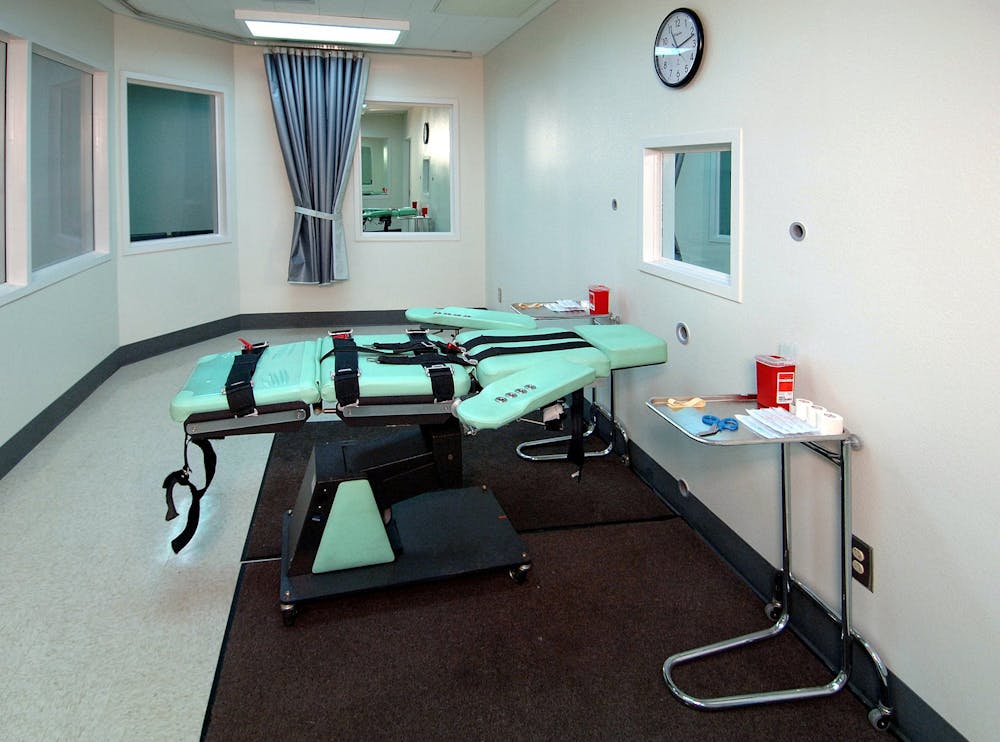By Janjabill Tahsin
Staff Writer
Khaliifah ibn Rayfrod Daniels, also known as Marcellus Williams, was executed by the state of Missouri on Sept. 24 for the 1988 murder of Felicia Gayle, despite concerns citing his potential innocence. Williams died by lethal injection Tuesday evening at the Eastern Reception, Diagnostic and Correction Center in Bonne Terre, Missouri. He was 55 years old.
Gayle was a social worker and former St. Louis Post-Dispatch reporter who was killed in her home. Prosecutors at William’s trial said he broke into her house and stabbed her 43 times with a large butcher knife in her kitchen when she came downstairs from her morning shower, according to AP News. Her purse and her husband’s laptop were stolen.
Prosecutors cited testimony from two witnesses, Williams’ ex-girlfriend, Laura Asaro, and prison informant Henry Cole, both of whom also had their own cases. Asaro noticed that Williams wore a jacket despite the summer heat. Authorities said that during that day, Williams wore a jacket to conceal blood on his shirt. She later saw the stolen purse and laptop in his car and said that he sold the computer a day or two later. Cole also testified that Williams confessed to the killing and provided details about it.
However, Williams’ attorneys claimed Asaro and Cole were incentivized to implicate Williams because they wanted a $10,000 reward and shorter sentences in their own cases. Evidence at the crime scene further undermined the witnesses’ credibility, including fingerprints, a bloody shoe print and hair, among others, that did not match Willams’. A crime scene investigator testified that the killer wore gloves.
New testing also found Williams’ DNA was not on the murder weapon and that it belonged to members of the prosecutor’s office who handled the knife without gloves after the original crime lab tests. No DNA evidence or results were found implicating an alternative suspect.
Judge Bruce Hilton ruled on Sept. 12 that the first-degree murder conviction and death would stand despite Midwest Innocence Project attorneys and the prosecutor’s office’s compromise for Williams to enter a new, no-contest plea to first-degree murder in exchange for a new sentence of life in prison without parole, which Hilton and Gayle’s family signed off on.
However, the Supreme Court blocked the agreement and ordered Hilton to proceed with an evidentiary hearing; it upheld Hilton’s decision on Sep. 23. Hilton noted that Williams’ arguments had all been previously rejected.
Williams’ attorneys also challenged the fairness of his trial, particularly the jury selection and the fact that only one of the 12 jurors was Black. The prosecutor in the case, Keith Larner, removed six of seven Black prospective jurors and testified at the August hearing that he struck one potential Black juror partly because he looked too much like Williams. Though Larner contended that the jury selection process was fair, Williams’ attorneys asserted that it showed improper racial bias.
According to CBS News, Williams had faced execution twice before his 2001 conviction. First, in 2015, to review DNA testing on the handle of the murder weapon, and a second execution date was set for Aug. 2017. Then, former governor Eric Greitens put a halt to William’s execution hours before he was set to be executed and appointed a panel of retired judges to investigate the DNA evidence. However, Missouri’s current Republican governor, Mike Parson, issued an order dissolving the board in June 2023, and no conclusion was reached.
In his statement on carrying out William’s execution, Gov. Parson said, “Mr. Williams has exhausted due process and every judicial avenue, including over 15 hearings attempting to argue his innocence and overturn his conviction. No jury nor court, including at the trial, appellate, and Supreme Court levels, have ever found merit in Mr. Williams’ innocence claims.”
William’s clemency petition was heavily focused on how Gayle’s relatives wanted William’s sentence commuted to life without parole.
“The family defines closure as Marcellus being allowed to live,” the clemency petition stated. “Marcellus’ execution is not necessary.”
However, Gov. Parson hoped that William’s execution would bring finality to a case that “languished for decades, revictimizing Ms. Gayle’s family over and over again.”
Larry Komp, William’s attorney and Supervisor of the Capital Habeas Unit in the Office of Federal Public Defender for the Western District of Missouri issued a statement on Sept. 24, saying, “Although we are devastated and in disbelief over what the State has done to an innocent man, we are comforted that he left this world in peace. Khaliifah, Jannah peacefully, InshaAllah.”
The Department of Corrections also released a brief statement that Williams had written ahead of time, saying: “All Praise Be to Allah In Every Situation!!!”







